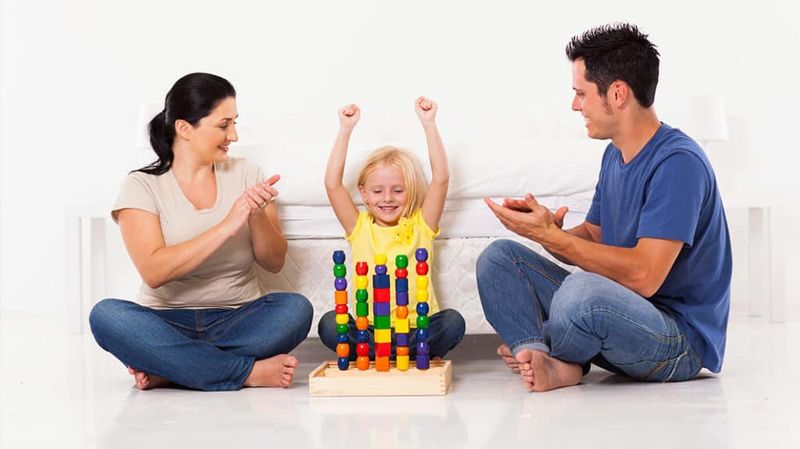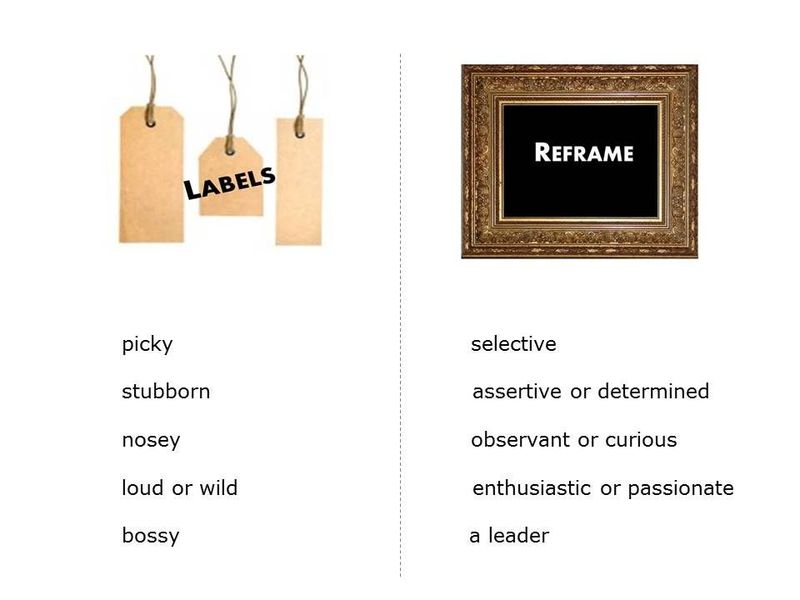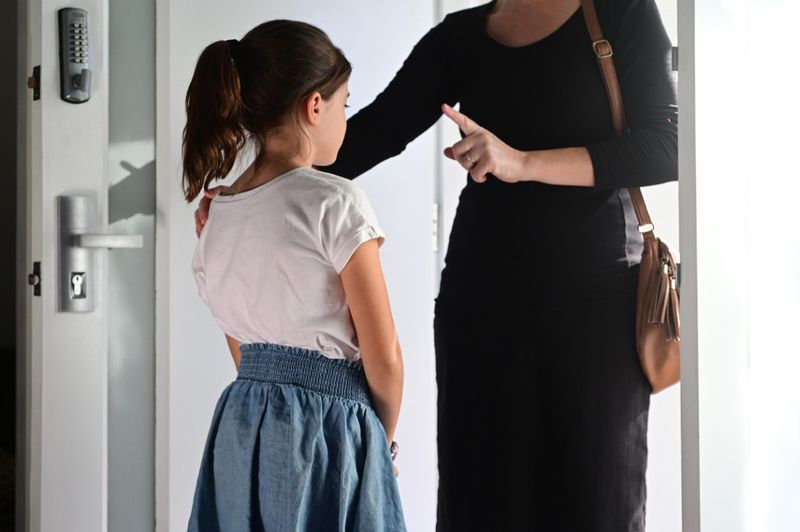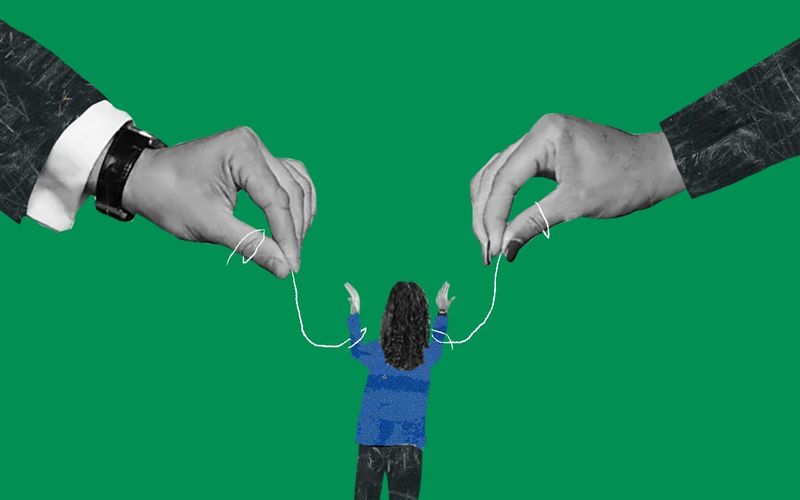17 Everyday Behaviors That Can Hurt a Child’s Confidence
Let’s be real: parenting sometimes feels like walking a tightrope in a windstorm. You want to raise humans who feel unstoppable, but all those little habits (the ones you barely even notice) can sneak up and chip away at their confidence.
Sometimes, it’s not what we say — it’s how often, how subtly, and how unconsciously we say or do it. Kids aren’t just listening for praise; they’re soaking up every single look, shrug, and side comment. The wild part? Even the most well-intentioned things can do damage if you’re not careful.
No one’s perfect, but a few tweaks here and there can make all the difference between a kid who feels “not enough” and one who stands tall. Let’s talk about the daily stuff that matters most — the stuff that quietly shapes our kids’ sense of self.
1. Relentless Red Pen Energy

Hearing “Actually…” or “No, that’s not right” every time you open your mouth is enough to make anyone want to quit. For a kid, constant correction feels like a spotlight on their flaws instead of their ideas. The more it happens, the faster their excitement fizzles out.
Instead of stepping in to fix every hiccup, try asking questions or letting them work things out on their own. Kids need space to experiment, mess up, and figure things out without someone jumping in with a red pen every two seconds.
Correction can quickly sound like criticism, especially if it’s relentless. If you want to build confidence, shift into coach mode — offer support, not a play-by-play critique. Even small tweaks in your approach can turn frustration into pride and make your child feel genuinely capable.
2. Gold Medal for Breathing?

Celebrating every single thing your child does—“Wow, you put on socks!”—sounds supportive, but it can get weird fast. Overpraising simple tasks often leaves kids unsure what’s actually special about their efforts. They start to question what real success even looks like.
A little cheer is great, but confetti for basic stuff? That makes genuine achievements feel a little empty. Kids figure out pretty quickly when praise is just noise instead of something meaningful.
The goal isn’t to withhold encouragement but to save the fireworks for when it matters. When praise is specific and earned, it builds real pride. Overdoing it turns everything into a participation trophy moment, and nobody wants to grow up feeling like applause is owed for doing the bare minimum.
3. Little Ears, Big Impact

There’s nothing like hearing your own flaws casually announced at a family dinner. Kids might look busy with their coloring books, but trust me—they hear everything. Even a joke about being “bad at math” or “so shy” lands harder than you realize.
The words we use to describe them can become the stories they tell about themselves. It’s one thing to vent to a friend, but when those remarks happen within earshot, it sticks. Children internalize labels, especially when they come from people they trust.
If you wouldn’t want your worst day broadcast to the group chat, don’t do it to your kid. Private worries belong in private conversations. When parents talk about strengths instead, children learn to focus on what’s possible instead of what’s wrong.
4. Saving the Day Too Soon

There’s a difference between helping and helicoptering. When you swoop in at the first sign of struggle—tying shoes, zipping jackets, solving math problems—you’re not just lending a hand. You’re sending the message: “I don’t think you can handle this.”
Kids need the chance to struggle, get frustrated, and finally nail it themselves. That’s how they learn grit and build real confidence. Quick fixes feel good in the moment, but they rob your child of the victory of figuring it out alone.
Yes, watching them flounder is tough, but growth happens in those messy, in-between moments. Step back and let them fumble a little. Instead of being the hero, be the biggest cheerleader for their small wins—they’ll remember that feeling long after they’ve forgotten how to tie their shoes.
5. The Quietest Voice in the Room

Getting interrupted is more than annoying—it teaches kids their words don’t matter. When adults constantly talk over children, even if it’s accidental, it sends a loud message: “Your thoughts aren’t important.”
After a while, some kids stop trying to share altogether. Others get louder—or more withdrawn—just to be noticed. Either way, they learn that their voice doesn’t hold weight in the conversation, and that stings.
Making space for their stories—even if they take the long way around—shows them they matter. Next time your child pipes up, pause and give them the floor. It’s a tiny change that leaves a huge mark on how confident they feel about speaking up, not just at your table, but everywhere they go.
6. The Comparison Trap

“Why can’t you be more like your sister?” Even gentle comparisons chip away at confidence faster than you’d think. Kids aren’t oblivious—they know when someone else is the gold standard.
Measurements like this create insecurity and rivalry, not inspiration. All it takes is one offhand comment to make a kid question their own strengths. That feeling can linger, coloring how they see themselves for years.
Instead of stacking kids against each other, try celebrating what makes each one unique. When you treat their differences as superpowers, you help them see their own worth. The world is already full of competition—let home be the one place they never have to fight for first place.
7. Sticky Labels Last Forever

Calling a child “the shy one,” “bossy,” or “the troublemaker” sticks in ways you can’t undo. Labels are like super glue for self-image—they cling tight, long after the moment has passed.
Even when meant as a joke, these nicknames shape how kids see themselves and how others treat them. It’s far too easy for a child to believe they’ll never be anything more than the label they’ve been given.
Switch out labels for honest, specific feedback about actions, not personalities. Everyone is more than one trait—or one bad day. Give your kid the freedom to try on new roles and outgrow old ones. That’s where confidence grows: in the space between who they were and all they could become.
8. Beauty Police on Patrol

“You’re wearing that?” Those little digs about hair, outfits, or bodies sink in fast—sometimes faster than praise ever could. Kids start scanning themselves for flaws before they even hit middle school.
Too much focus on looks can quietly shape how they see themselves for life. Even well-meaning advice on grooming or style can leave a sting if it’s constant or critical.
Try shifting your focus to effort, creativity, or their sense of fun instead of what’s “wrong.” Let them experiment, even if it’s not your style. Confidence blooms when kids feel accepted for who they are—not just how they look walking out the door.
9. The Guilt Trip Express

“You made me so sad.” When discipline turns into guilt-tripping, kids learn that love has strings attached. They start believing their worth is tied to keeping you happy.
This kind of emotional leverage can lead to anxiety and a fear of messing up. Kids might even hide mistakes just to avoid disappointing you. That’s a heavy burden for small shoulders.
Focus on what went wrong and how to make things better, not on how bad it made you feel. Unconditional love—mess and all—teaches them they’re valued for who they are, not just for making you proud. Save the drama for reality TV, not the dinner table.
10. Big Feelings, Brushed Aside

Brushing off your child’s tears with “You’re overreacting” or “It’s not a big deal” hurts more than you think. Kids have real emotions, even if they seem small to us. Dismissing them teaches children to bottle things up and question their own feelings.
When a kid feels like their emotions are too much, they start to hide who they are. That’s the opposite of what builds true confidence. They need to know it’s okay to feel all the things—loudly, messily, unapologetically.
Taking a second to listen and validate isn’t coddling; it’s showing respect. Sometimes, a simple “That sounds hard” is enough to help them stand taller next time life throws a curveball.
11. Effort Blindness

Noticing the B instead of the effort it took to get there? That kind of tunnel vision chips away at a kid’s self-worth, sip by sip. Children remember if you only celebrate perfect outcomes, not the hard work along the way.
When kids believe only results matter, they stop taking risks. Why bother trying something new if mistakes mean disappointment? The lesson becomes: “If it’s not perfect, it’s not enough.”
Make a big deal out of trying, practicing, and sticking with tough stuff—even when the end result isn’t a gold-star masterpiece. Confidence is built on effort, not just easy wins. Your words can help them fall in love with learning, not just applause.
12. Decisions, Decisions… Not Theirs

Micromanaging every detail—outfits, lunches, hobbies—sends a clear signal: “I don’t trust you to make choices.” Over time, this can make even the most confident kid second-guess everything they do.
It’s tempting to want to protect your child from every bad option, but too much control backfires. Kids who never get to decide end up afraid of making mistakes—and terrified of disappointing you. Freedom to pick, mess up, and try again is where the magic happens.
Try giving choices, even if you don’t love every outcome. It’s better to let them wear mismatched socks than worry about never getting it right. Independence is messy, but it’s the secret sauce for real self-assurance.
13. Dreams on the Chopping Block

“That’s silly.” When a child shares a big, wild dream and gets laughed at or brushed off, it stings. Kids take these moments to heart—especially when the dream feels important to them.
It might seem harmless to poke fun, but small jokes can shrink even the boldest ambitions. Over time, kids start to think their dreams are too weird or impossible to share. That’s how confidence takes a hit.
Encourage them, even if their goals sound outlandish or tough. The world is full of people who’ll laugh at their ideas. Let home be the place where dreams get a chance to grow—no matter how messy or out-there they sound.
14. Lost in the Scroll

The message is loud and clear when your phone gets more eye contact than your child. Over time, kids learn that whatever’s on the screen is more important than what they have to say. It hurts—sometimes more than words ever could.
Even five minutes of real attention beats hours of distracted half-listening. Kids pick up on where your focus goes, and it shapes how they see their own value. Being ignored chips away at their sense of importance.
Give them your undivided attention, even if it’s just for a short burst. It shows them they’re worth every minute, and that confidence starts with being seen and heard.
15. Ouch, That Was Personal

A little family teasing seems harmless—until it isn’t. What feels like a joke to you can cut deep for a kid, especially if it pokes fun at something they care about. Repeated jabs, even playful ones, leave marks that aren’t always visible.
Kids may laugh it off in the moment, but the hurt can stick around long after. Teasing that feels personal can make children want to hide, rather than shine. It teaches them to expect embarrassment instead of encouragement.
Swap out teasing for gentle humor or honest encouragement. Kids will always remember the grown-ups who made them feel safe to share their quirks and talents.
16. Only Noticed When Naughty

Some kids get more attention for coloring on the walls than coloring inside the lines. When effort and kindness are ignored, but every little slip-up gets a spotlight, children learn that acting out is the fastest way to get noticed.
This pattern can turn into a self-fulfilling prophecy. Kids may start to believe that negative attention is better than none at all. Over time, confidence drops, and misbehavior becomes a habit.
Try catching your child being good—give attention to effort, even when things aren’t perfect. Celebrate progress instead of just pointing out problems. It helps kids see themselves as more than their mistakes.
17. Sensitive, Not Broken

Being sensitive isn’t a flaw, but it sure can feel like one if you’re told to toughen up all the time. When parents dismiss a child’s big reactions with “You’re too sensitive,” it sends the message their feelings are wrong or inconvenient.
Kids who feel shamed for their emotions learn to hide them or pretend they don’t care. That’s a one-way ticket to self-doubt and insecurity. Sensitivity is actually a superpower—one that needs to be celebrated, not squashed.
Support your child’s emotional world instead of shutting it down. Teach them that feeling deeply isn’t something to fix, but something to appreciate. It’s the kind of confidence that grows from truly knowing—and liking—yourself.







